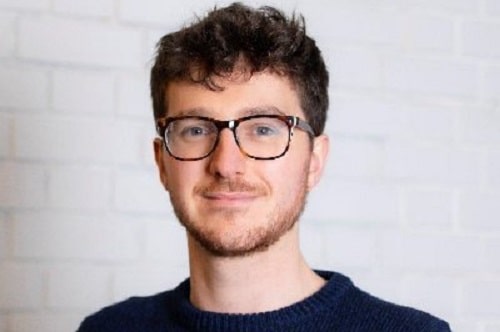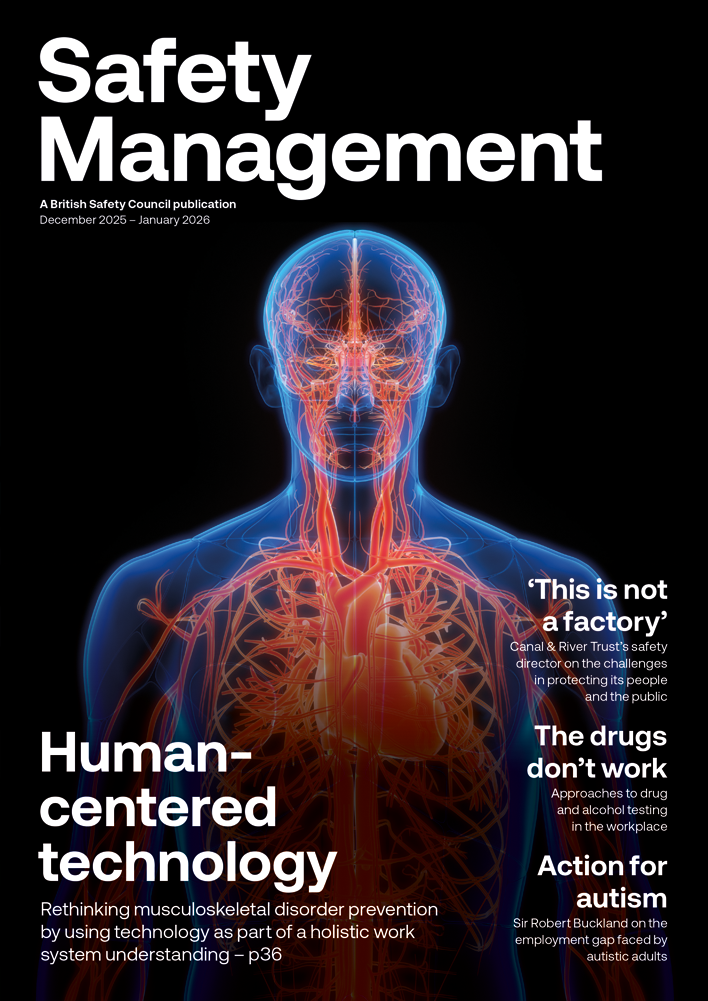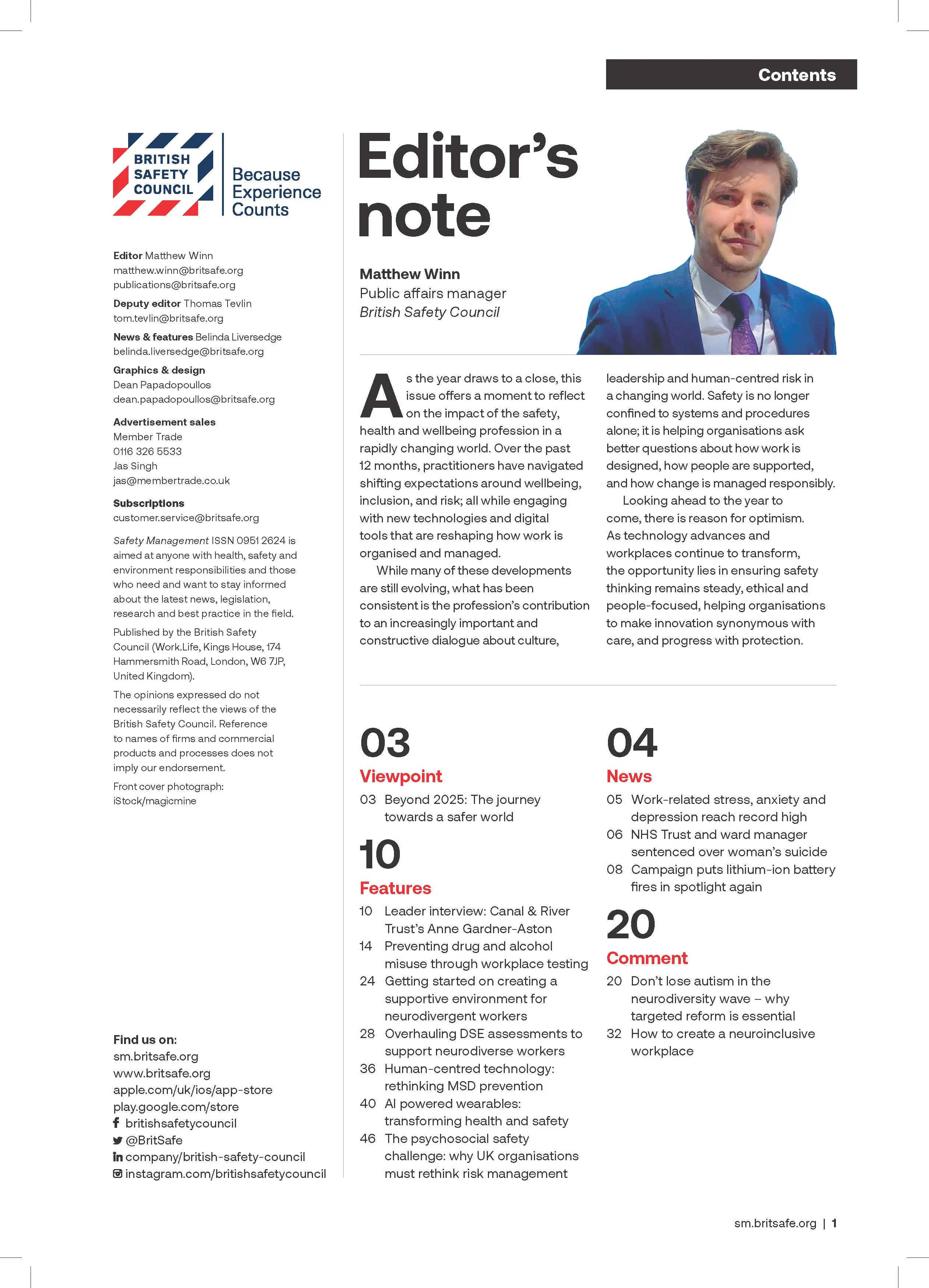It’s Zahra’s first day back at work, as her office reopens after several months. Before this year, she wouldn’t have said her job at an IT services company was a dangerous one – bar the odd stray cable on the floor.
Opinion
Injury prevention must be a public health priority
But now she’s worried for her safety in her average office environment. The dangers of working in sectors like agriculture and construction are well known, but who could have imagined a water-cooler conversation with colleagues would become so risky?
Zahra’s not alone – a recent survey by Aviva found 35 per cent of people returning to work don’t trust their employer to make the workplace Covid-secure. Workplaces which would previously be considered ‘low risk’, such as retail, hospitality and offices, may have a higher infection risk than those such as farms where much of the work is outdoors.
 Lesley Rankin: HSE and local authorities need more resources to carry out their role effectively
Lesley Rankin: HSE and local authorities need more resources to carry out their role effectively
To reduce the risk of infection, and give workers greater – and justified – confidence to return, regulators must ensure that workplaces are Covid-secure across a wide range of settings.
But the budgets of the Health and Safety Executive (HSE) and local governments (between them responsible for health and safety in workplaces) have been cut significantly since 2010, with reduced inspection and enforcement levels. The government has announced an extra £14 million pandemic funding for the HSE, but this still leaves it with £84 million less than in 2010/11 and does not help cash-strapped local authorities.
Faced with this higher level of workplace risk, urgent funding increases are needed to handle the additional workload without compromising other workplace safety requirements. The think tank IPPR’s recent report, Better than cure: Injury prevention policy, recommends gearing these towards rapidly increasing the number of inspectors, with fast tracked Covid-19 specific training so they can enter the field as soon as possible.
Longer term, the government should review the resources needed by the HSE and local authorities to carry out their role effectively.
It should become mandatory for organisations with 50 employees or more to publish their Covid-19 risk assessments. This will ensure that businesses take the process seriously and will open them up to public scrutiny. Further, the government should support small businesses to make workplaces Covid-secure where there are large upfront costs. A grant scheme with an initial £1.5 billion could be operated by local authorities.
New analysis in the report shows that, before the pandemic, workplace illness and injury were twice as high for lower paid workers than higher paid ones. Injury prevention, then, is also a matter of fairness.
Although the UK has been a world leader in injury prevention policy, austerity and a lack of strategy have hampered further improvement. The Office for National Statistics records over 10,000 avoidable deaths from injuries in UK every year, with leisure and home injuries thought to be growing. But injuries are not inevitable.
More broadly, the Covid-19 pandemic has raised the profile of public health, and of health and safety, on political and public agendas. In the months following the initial crisis, this should enable a renewed focus on injury prevention in general, and occupational health in particular, as the return to work creates new infection risks.
Now is the time to start treating injury prevention as a public health priority. Public policy can help prevent injuries and unnecessary harm. At IPPR we propose a national strategy to prevent injury everywhere we live and work across the UK, with a new injury prevention commissioner to consult with government departments, businesses and civil society. A coherent cross-sector plan would replace the current piecemeal and disjointed policies, with mechanisms to ensure accountability.
It was Cicero who said “the safety of the people shall be the highest law”. The right resources and strategic, coordinated action are needed so that Zahra and her colleagues are empowered to live and go to work without fear.
Lesley Rankin is researcher at the Institute for Public Policy Research (IPPR)
OPINION

Alcohol – the negative impact on work and workplaces
By Dr Jamie O’Halloran, IPPR on 02 January 2026
New IPPR research shows that most employees expect their employer to play an active role in reducing alcohol harm. Senior staff, in particular, believe employers have an even greater responsibility. Yet in practice, many employees say they do not see their employer taking meaningful steps to minimise harm.

Beyond 2025: The journey towards a safer world
By Mike Robinson FCA, British Safety Council on 22 December 2025
As 2025 draws to a close, we reflect on a year of success and safety. It also allows us to look forward to the coming year, recognising that with each new year comes the unbridled hope and opportunity to create the safest year in human history for the workers of the world.

How to create a neuroinclusive workplace
By John Robinson, Schofield Sweeney on 09 December 2025
The modern workplace is a diverse environment. Most workforces will be made up of individuals representing the majority of the groups protected under the Equality Act 2010.



